Some home remedies, like rinsing with saline or applying a cold pack, can provide temporary relief from tooth pain. Still, if discomfort continues, a dental professional may need to address the underlying problem.

A toothache is pain ranging from mild to intense around your teeth and jaws. It often signals an issue with a tooth or the surrounding gums.
If you’re dealing with a toothache, identifying what’s causing the pain is essential. Once you know the source, you can choose the most effective way to ease pain, swelling, or other symptoms.
A warm saltwater rinse and a cold compress will commonly soothe minor irritation, but more serious toothaches typically require a dentist’s care.
If symptoms last longer than a day or two, contact your dentist. They can advise on ways to manage your symptoms and reduce the chance of recurring pain.
Discuss any of the following remedies with your dentist before trying them if you’re pregnant, breastfeeding, or have a medical condition that could be affected by herbal or natural products.
Read on to find out more.
1. Saltwater rinse
For many, a saltwater rinse is an effective first measure. Salt acts as a natural antiseptic and can help dislodge food and debris lodged between teeth.
Using salt water to treat a toothache can also diminish inflammation and support healing of minor oral lesions.
To prepare this rinse, dissolve 1/2 teaspoon (tsp) of salt in a glass of warm water and swish it around your mouth.
2. Hydrogen peroxide rinse
An appropriately diluted hydrogen peroxide rinse can help reduce pain and swelling. Beyond killing bacteria, hydrogen peroxide may decrease plaque and help heal bleeding gums.
Be sure to dilute it properly. Mix 3-percent hydrogen peroxide with equal parts water and use it as a mouthwash. Do not swallow the solution.
3. Cold compress
A cold compress can ease pain, especially if your toothache followed some kind of facial trauma.
Cold causes local blood vessels to narrow, which can lessen pain intensity. It also reduces swelling and inflammation.
Wrap a bag of ice in a towel and hold it against the painful area for 20 minutes at a time. Repeat every few hours as needed.
4. Peppermint tea bags
Peppermint tea bags can provide a mild numbing effect and calm tender gums.
Let a used tea bag cool slightly before placing it on the sore area; it should be comfortably warm.
You can also chill a used tea bag in the freezer for a couple of minutes and apply it cold to the painful tooth. Learn more about peppermint’s health benefits.
5. Garlic
Garlic has been valued for its medicinal effects for millennia and possesses antibacterial qualities. It can combat bacteria that form dental plaque and may also relieve pain.
For a toothache, crush a garlic clove into a paste and apply it to the affected area; a pinch of salt may be added. Alternatively, slowly chew a fresh garlic clove.
6. Vanilla extract
Vanilla extract contains alcohol, which can help numb discomfort. Its documented antioxidant effects may aid healing. Use pure vanilla rather than imitation extracts.
Dab a small amount of vanilla extract onto a finger or cotton swab and apply it to the painful spot several times daily.
Other natural remedies
The following options can be attempted at home but you may need to buy ingredients from a health food retailer or online.
Your mouth, teeth, and gums are likely sensitive, so choose products from trusted brands to minimize the chance of irritation.
7. Clove
Clove has long been used to treat tooth pain. Its oil can numb soreness and decrease inflammation. Eugenol, present in clove, acts as a natural antiseptic.
To use clove oil, dilute it with a carrier oil such as sunflower or jojoba. A typical ratio is about 15 drops of clove oil per ounce of carrier oil, per the National Association of Holistic Aromatherapy.
Apply a small amount of the diluted mixture to a cotton ball and place it on the sore area a few times daily. You can also add a drop to a small glass of water to make a mouth rinse.
8. Guava leaves
Guava leaves possess anti-inflammatory qualities that support wound healing. They also have antimicrobial effects helpful for oral care.
Chew fresh guava leaves or crush them and steep in boiling water to create a mouthwash.
9. Wheatgrass
Wheatgrass offers many restorative benefits, including anti-inflammatory and immune-supporting effects. Rich in nutrients and high in chlorophyll, it helps combat bacteria.
Drink wheatgrass juice or use it as a rinsing liquid for your mouth.
10. Thyme
Thyme provides strong antibacterial and antioxidant properties that may help treat toothaches. It can combat bacteria associated with tooth decay.
Dilute thyme essential oil in a carrier oil and apply to the painful area, or add a drop to a glass of water to use as a mouth rinse.
11. Toothache plant
The toothache plant, a flowering species found in tropical and subtropical climates, contains spilanthol, which has anti-inflammatory effects according to a 2021 review. Chewing it can produce a numbing sensation.
This plant is usually safe, but avoid it if you:
- are allergic to plants in the daisy family
- consume alcohol
- use diuretics
- have prostate cancer
- are pregnant
When to call your dentist
If your toothache is intense or due to a more serious issue, it’s important to seek dental care to treat it correctly. Many toothaches require professional treatment. Over-the-counter pain relievers like ibuprofen can help temporarily until you see your dentist.
See your dentist promptly if you experience any of the following:
- fever
- difficulty breathing or swallowing
- pain lasting more than a day or two
- swelling
- pain when biting
- gums that are unusually red
- foul-tasting discharge or pus
Possible causes of a toothache
At your visit, your dentist will inspect your mouth to determine the cause of the toothache and may take X-rays.
Treatment depends on the diagnosis:
- Dental decay: If a cavity is the cause, the dentist usually removes the decay and places a filling.
- Filling issues: When a cavity is filled, the dentist uses a tooth-colored material. If an existing filling is causing trouble, it may be replaced.
- Abscess: An untreated cavity can lead to a dental abscess. Treatment may include antibiotics, a root canal, or tooth extraction.
- Teeth grinding (bruxism): If clenching or grinding causes pain, a mouthguard may be recommended.
- Periodontal disease: Plaque leading to gingivitis can progress to gum disease, which requires professional cleaning to remove tartar and slow the condition.
How to prevent a toothache
Good oral hygiene reduces the chance of toothaches. Floss daily and brush for two minutes at least twice a day. You may also use an antiseptic mouthwash.
Keep up with dental checkups and cleanings twice yearly.
Certain foods promote plaque buildup, including:
- citrus
- bread
- sour candies
- potato chips
- dried fruits
- carbonated beverages
- alcohol
- ice
Brush and floss after eating these items to lower plaque formation, or consider reducing them in your diet.
Frequently asked questions
How do you get rid of a toothache at night?
To manage a toothache overnight, you can:
wp:list
- rinse with fluoride mouthwash
- apply a topical numbing gel
- use a cold compress
/wp:list
Elevate your head while sleeping to reduce swelling and prevent blood from pooling near your head. Over-the-counter pain relievers such as ibuprofen (Advil, Motrin), acetaminophen (Tylenol), or aspirin can also help.
How do you get rid of a toothache in 5 minutes?
To try to relieve a toothache quickly, rinse with hydrogen peroxide, salt water, or wheatgrass.
Then apply clove oil, vanilla extract, or a garlic paste to the sore area.
Finish by using a cold compress or ice pack. If pain persists or is severe, contact your dentist.
How can I get rid of a toothache without medication?
Depending on the cause, you may not always eliminate a toothache without medication.
However, thorough oral hygiene—brushing, flossing, and rinsing with mouthwash, salt water, or hydrogen peroxide—may provide relief.
Additional nonmedication options include using a cold compress, oil pulling, or chewing fresh garlic. If pain is severe or prolonged, see your dentist.
The takeaway
Toothaches can be very uncomfortable. While a dental visit is important to determine and treat the root cause, home measures like cold compresses and saltwater rinses can offer temporary relief until you receive professional care.






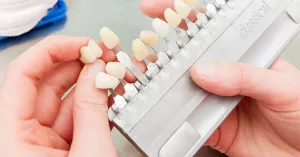
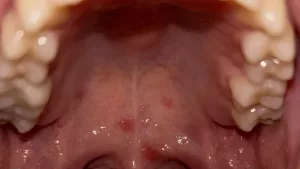
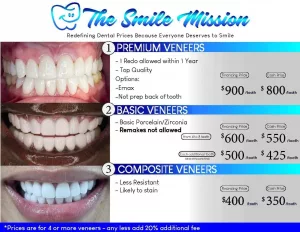
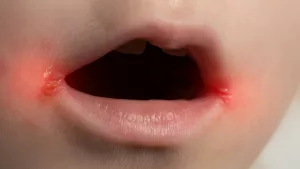



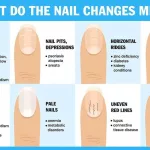
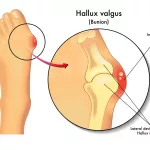










Leave a Reply
You must be logged in to post a comment.